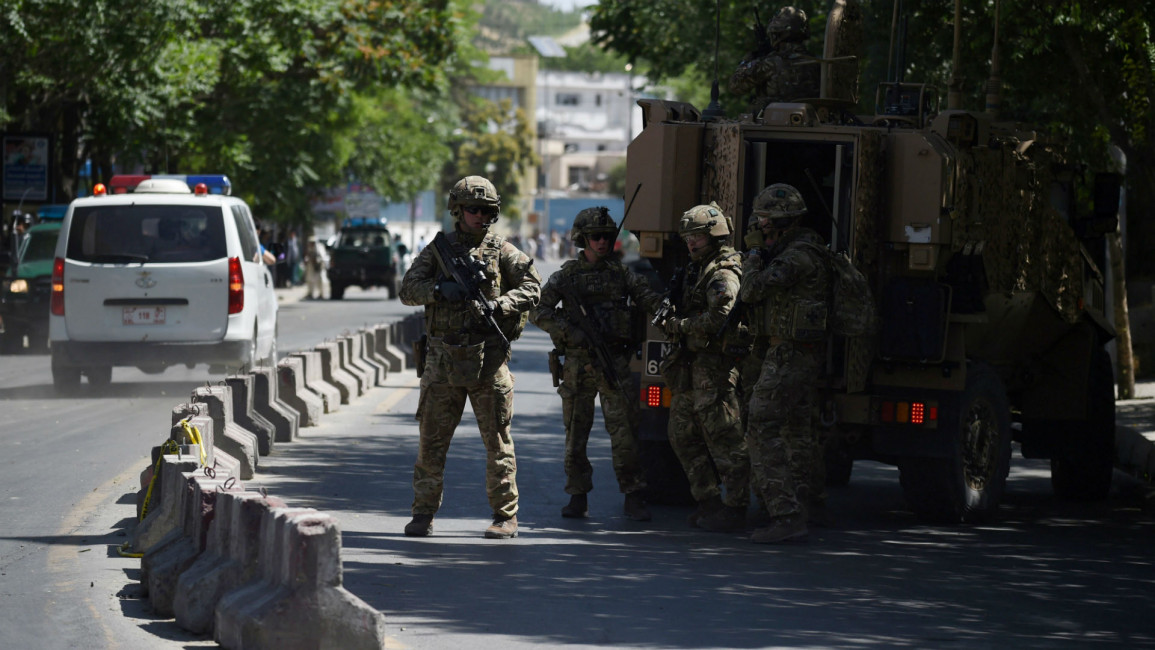Top US commander in Afghanistan denies orders to withdraw
General Scott Miller's remarks on Sunday capped a tumultuous few days for Afghanistan as foreign diplomats and Afghan officials digested the possibility of the United States exiting the 17-year war it started and is now leading efforts to end.
An American official told AFP late last week that Trump had decided to pull out "roughly half" of the 14,000 US forces in the country, but the White House has so far not confirmed the widely-publicised move.
"I have no orders, so nothing has changed," said Miller, who is also the top NATO commander in Afghanistan, during a meeting with the governor of the eastern province of Nangarhar, according to Tolo News.
The remarks were confirmed by NATO's Resolute Support mission in Kabul.
"But if I do get orders, I think it is important for you to know that we are still with the security forces. Even if I have to get a little bit smaller, we will be okay," Miller continued.
US troops make up the bulk of the Resolute Support mission to train and advise local forces fighting the Taliban and the Islamic State group.
Others are part of a US-led counter-terrorism mission.
While there has been no official announcement of a US drawdown, the mere suggestion of the United States reducing its military presence has rattled the Afghan capital.
Trump's decision apparently came on Tuesday as US peace envoy Zalmay Khalilzad met with the Taliban in Abu Dhabi, part of efforts to bring the militants to the negotiating table with Kabul.
The Taliban has not issued a formal statement on Trump's plan, but a senior commander told AFP the group was "more than happy".
There are fears the hasty move could undermine Khalilzad's negotiating position, embolden the Taliban, and further erode morale among Afghan forces, which are suffering record losses.
Many Afghans are worried that President Ashraf Ghani's fragile unity government would collapse if US troops pulled out, enabling the Taliban to return to power and potentially sparking another bloody civil war.
The Afghanistan withdrawal was leaked the day Trump told the Pentagon he wanted to pull all US forces out of Syria. Defence Secretary Jim Mattis quit following the announcement, saying his views were no longer reconcilable with Trump's.
High risk strategy
Critics suggest the president's twin foreign policy decisions on Syria and Afghanistan could unspool a series of cascading and unpredictable events across the Middle East and in Afghanistan.
US Senator Lindsey Graham described the Afghanistan decision as a "high risk strategy".
"If we continue on our present course we are setting in motion the loss of all our gains and paving the way toward a second 9/11," he warned via Twitter.
Afghan forces have been taking what experts describe as "unsustainable" casualties since NATO pulled its combat forces out of Afghanistan at the end of 2014.
Lieutenant General Kenneth McKenzie, who has been nominated to lead the US military's Central Command, warned earlier this month that unless recruiting and training improve, local forces will not overcome the current casualty rate.
The Taliban was toppled from power by a US-led invasion in 2001 following the 9/11 attacks masterminded by Al-Qaeda leader Osama bin Laden, who had been harboured by Afghanistan.
The war is now America's longest, with more than 2,200 US military personnel killed there since the start 2001, including 13 this year.
Mattis and other top military advisors last year persuaded Trump to commit thousands more troops to Afghanistan as part of a strategy that also included ramping up airstrikes on the Taliban and its relatively small but potent rival, the Islamic State group.
Trump at the time said his instinct was to get out of Afghanistan.
Agencies contributed to this report.
Follow us on Twitter: @The_NewArab



![Hundreds demonstrate against the White House Correspondents' Dinner in support of Gazan journalists. [Brooke Anderson/TNA]](/sites/default/files/styles/image_330x185/public/2024-04/5cde0bce-4652-4e28-a001-f06b9b8f8e28.jpg?h=ddb1ad0c&itok=R_uaRAn7)